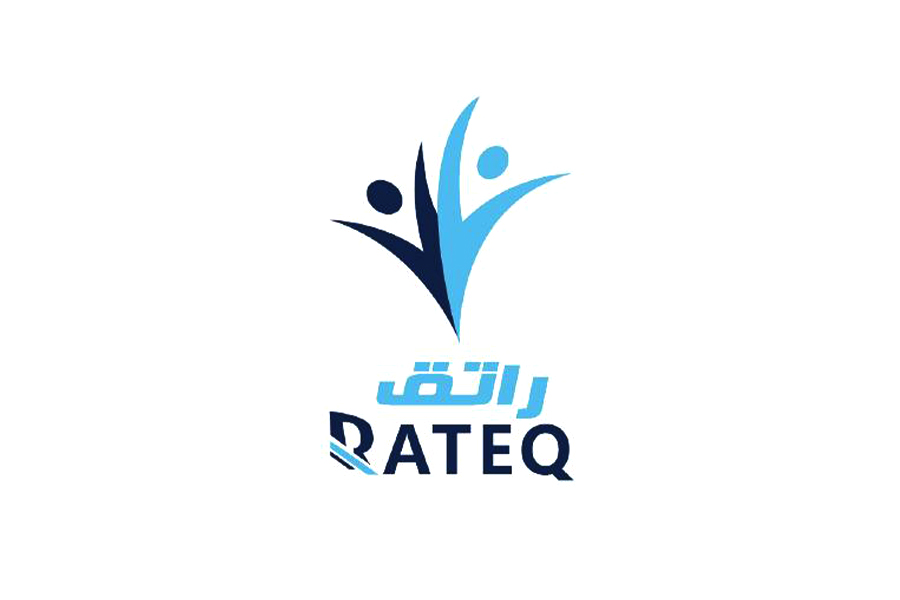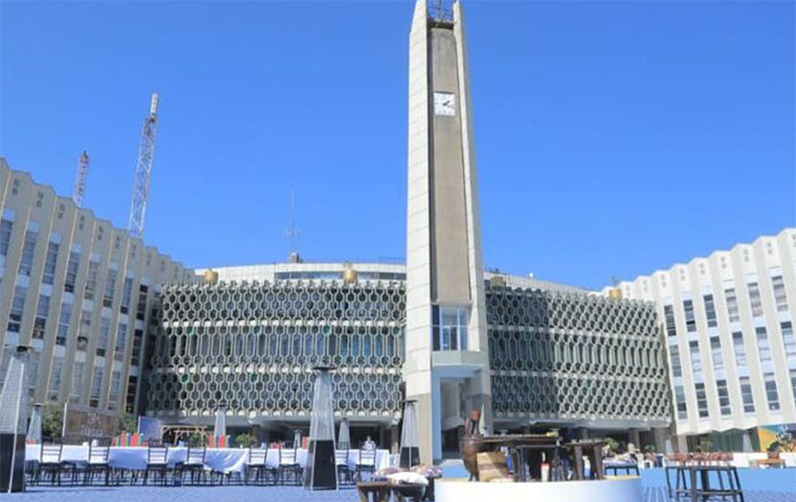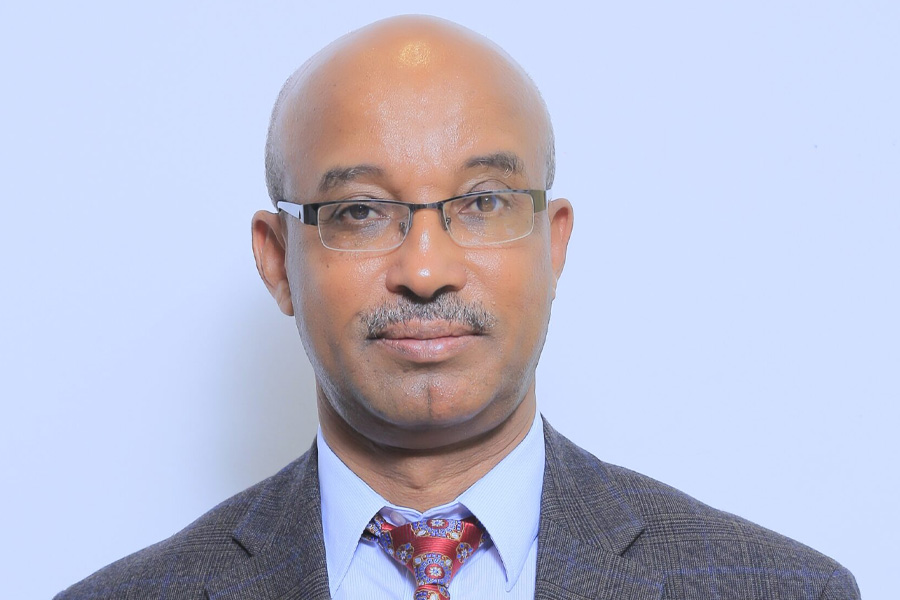
Advertorials | May 21,2024
Ethiopia’s long-awaited capital market is taking shape. Last week, officials unveiled two key draft directives for public consultation—one on Self-Regulatory Organisations (SROs) and another on the dematerialisation of securities—marking a noteworthy step towards the establishment of a fully functioning securities exchange.
The dematerialisation directive requires that all publicly offered securities be registered with a Central Securities Depository (CSD) before they can be traded. Once dematerialised, these securities are legally recognised and enforceable, with their ownership recorded electronically in the CSD’s database. This move signals the transition from physical certificates to digital records, making market transactions more efficient and transparent.
Officials at the Ethiopian Capital Market Authority (ECMA) reason that the shift to an electronic system will enhance investor protection by improving transparency and security. "Dematerialisation is essential for guaranteeing the safety and efficiency of market operations," said one official involved in the directive-making. "It'll grant the regulatory body more oversight, ensuring that all securities are monitored under a unified system."
The directive applies to all publicly offered securities, including those issued by state-owned enterprises (SOEs) and traded both domestically and abroad. These securities will have to be registered with the CSD, and only electronically registered securities will be eligible for trading once the capital market begins operations.
The CSD, which will be managed by the National Bank of Ethiopia (NBE) and built by the U.S.-based technology firm Motran, will store vital information such as shareholder identities, the number of securities issued, and other essential details. The official disclosed plans to eventually involve private sector firms as CSD providers, though for now, the central bank will serve as the sole operator.
Mistre Urge, deputy director of the CSD project at the central bank, said the system is nearly ready and will be launched alongside the capital market’s debut with a rulebook governing the CSD being finalised.
"We're in the final stages of preparation," he said. The NBE has been ramping up its operational capacity through training programs and oversight improvements to ensure a smooth transition to electronic securities.
As the administrative body, the Authority will enforce penalties for violations, ranging from financial sanctions to blacklisting of service providers who fail to comply with CSD regulations. The new system will also introduce a Client Compensation Fund to protect investors from transaction failures between brokers and dealers, though this fund is still in the planning phase.
"Investor confidence is crucial," said Tilahun. "This fund will provide an added layer of protection."
The introduction of dematerialised securities comes as part of a broader effort to establish a fully functioning capital market. According to a recent study by the Authority, the equity market for state-owned enterprises could grow to 31 billion Br, while the debt market may expand to 338 billion Br by 2028. Private sector equity is expected to reach 15 billion Br, driven by increased investment opportunities and deeper financial markets. If the necessary reforms are implemented and political stability is maintained, the study projects that financial savings could rise to 1.5 trillion Br within the next five years.
Ethiopian Securities Exchange (ESX) has also been making strides. Last year, it raised 1.51 billion Br in subscribed capital and 800 million Br in paid-up capital from private sector investors, including commercial banks and insurance companies. The ESX’s trading platform, which is being developed by Infotech, completed its first round of cybersecurity and quality assurance testing last week and is expected to be ready by mid-November.
"We're preparing to trade equities, bonds, and interbank products as soon as the market opens," said Tilahun.
Ethiopia’s entry into the world of stock markets comes later than many of its African peers, but financial analysts believe this delay could work in the country’s favour adding that digitising securities will further strengthen Ethiopia’s financial infrastructure. Mered Firkeyohannes, a financial and investment advisor, argues that the country can benefit from the technological advancements developed by more mature markets.
"The central bank’s experience in managing government-issued bonds and pension funds positions it well to operate a CSD," he said.
Mered noted the need for robust regulation to ensure timely and accurate information flow in the market.
"The authority must remain vigilant to safeguard market integrity," he noted.
Another directive under review involves the licensing and regulation of SROs. Licensed entities, such as the ESX and CSD providers, will be designated as SROs, responsible for supervising service providers within the capital market. These organisations will play a critical role in maintaining market integrity and reducing systemic risks. Under the new regulations, SROs are required to establish policies that separate their regulatory functions from commercial activities, ensuring a conflict-free environment.
The draft directive also outlines the eligibility criteria for becoming an SRO, which include financial soundness, educational qualifications, and adherence to anti-money laundering and counter-terrorism financing rules. SROs will be tasked with admitting members, prioritising investor protection, and promoting market integrity. They are also required to submit quarterly reports to the ECMA, detailing their inspection, disciplinary, and surveillance activities.
The ESX, as an SRO, will oversee membership approvals, regulate client accounts, and supervise market operations. It may also establish a Client Compensation Fund, subject to ECMA’s approval, to safeguard investors from transaction failures.
"We're preparing for service providers, such as brokers and dealers, to enter the market and provide the necessary liquidity," Tilahun said, expressing optimism that it will soon be up and running.
PUBLISHED ON
Oct 25, 2024 [ VOL
25 , NO
1278]

Advertorials | May 21,2024

Radar | Aug 07,2021

Radar | Jun 24,2023

Viewpoints | Oct 11,2025

Radar | Dec 07,2019

Viewpoints | Dec 04,2022

Fortune News | Dec 25,2021

Fortune News | Jul 09,2022

Radar | Nov 24, 2024

Life Matters | Dec 02,2023

Dec 22 , 2024 . By TIZITA SHEWAFERAW
Charged with transforming colossal state-owned enterprises into modern and competitiv...

Aug 18 , 2024 . By AKSAH ITALO
Although predictable Yonas Zerihun's job in the ride-hailing service is not immune to...

Jul 28 , 2024 . By TIZITA SHEWAFERAW
Unhabitual, perhaps too many, Samuel Gebreyohannes, 38, used to occasionally enjoy a couple of beers at breakfast. However, he recently swit...

Jul 13 , 2024 . By AKSAH ITALO
Investors who rely on tractors, trucks, and field vehicles for commuting, transporting commodities, and f...

Nov 1 , 2025
The National Bank of Ethiopia (NBE) issued a statement two weeks ago that appeared to...

Oct 25 , 2025
The regulatory machinery is on overdrive. In only two years, no fewer than 35 new pro...

Oct 18 , 2025
The political establishment, notably the ruling party and its top brass, has become p...

Oct 11 , 2025
Ladislas Farago, a roving Associated Press (AP) correspondent, arrived in Ethiopia in...